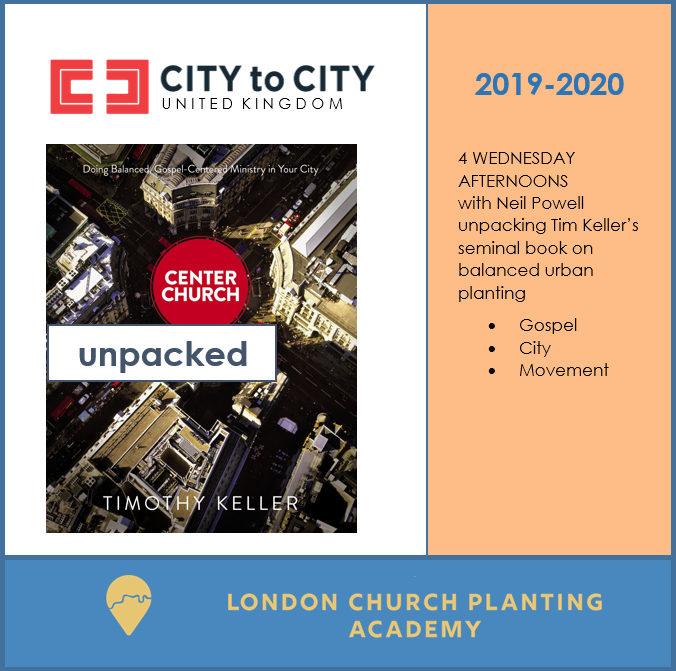Zim Okoli brings research on the history of the Nigerian church to bear on the issue of contextualisation.
—————-
“To over-contextualize… means you can make an idol out of their culture, but to under-contextualize… means you can make an idol out of the culture you come from.” (Tim Keller, interview 2010)
What does it mean for a church to be rightly contextualised? What does it mean to have a ‘native church’? A Lithuanian church that is rightly Lithuanian? A church for Catford which is appropriate to Catford?
Two indigenous missionaries of the 19th and 20th century, Samuel Crowther and Garrick Braide, pioneers of early evangelicalism in Nigeria, represent different ways to go about contextualisation and helpful ways into answering the question of what does it mean to establish a church which is both biblical and culturally appropriate?
Samuel Ajayi Crowther is a great figure in the history of evangelical ministry in Nigeria. A former victim of the Islamic slave trade, he was freed by an anti-slave patrol of the British navy, and taken to Sierra Leone where he was educated, came to faith, and was subsequently trained by the Anglican church. Championed by Rev. Henry Venn (then Secretary of the CMS and advocate of self-sustaining, self-governing, self-propagating indigenous churches), Crowther pioneered the Niger Mission in 1857; a mission organisation with the aim of developing a ‘Native Church’ in Nigeria. The mission was wholly African staffed, making use of freed Christian slaves like himself to convert and train indigenous Nigerians. Crowther was consecrated a bishop in 1864, making him the first African bishop of the Anglican church. In his ministry practice, Crowther was staunchly committed to the authority of the Scriptures, the sacraments of the church and catechising baptismal candidates. Crowther’s ministerial career ended in resignation in 1891, after putting up with much unwarranted criticism from European CMS missionaries who were keen to undertake work in the Niger region and continually questioned the African bishop’s competency.
One of the legacies of Crowther’s work and the model of a self-sustaining, self-governing, self-propagating national church has been the great strength and missionary zeal of the Nigerian Christianity. The Christian share of the population grew from 21.4% in 1953 to 50.8% (80.5 million Christians) in 2010, and many Nigerian church movements are engaged in planting churches nationally and internationally (not least in London). Within the orthodox Anglican communion, Nigeria has a leading position, with Archbishop Ben Kwashi as GAFCON’s current General Secretary.
Bishop Crowther’s insistence on catechism is also worth underlining. On the issue of converts who were already in polygamous marriages, Crowther sought to protect the church from syncretism through setting a long course of catechism for converts prior to official admission into the Anglican church by baptism. Catechism has become a rare practice in churches today. However, there is much error that could be avoided if new converts are equipped with a basic understanding of the doctrines of Christian belief, not necessarily as a qualification for baptism but as a way of giving opportunity to discuss areas of potential difficulty in living out the Christian faith. There is still much room for Nigerian pastors and theologians to develop African theological perspectives that address grassroots concerns in Nigeria.
If Crowther represents the beginning of Nigeria’s continued connection to the established church (particularly Anglican), then Garrick Sokari Braide would represent the beginnings of the now very large “prophet-prayer-healing” church movements in Nigeria. Braide was a catechist of the Anglican Church and was confirmed in 1912 by the African Bishop James Johnson. Braide became an enigmatic Anglican evangelist, claiming to have been called by God in a vision. He quickly attracted a following of disciples as he travelled preaching the gospel, winning converts and performing various miracles. His mentor Rev. M. A. Kemmer believed his gifts to be genuine and reported how “there had never been any instance where Garrick consented to pray [for] any sick person in which the prayer failed to be efficacious.” Whilst Braide remained committed to evangelical doctrines, his emphasis on faith healing and acceptance of the title ‘prophet’, scandalised him in the eyes of the Anglican authorities and led to his eventual falling out of fellowship with the Anglican church.
In 1916, Braide’s fanatical following increasingly took his public statements calling for a self-determining native church to mean the ejection of all aliens from the Niger Delta. The seriousness with which Braide’s mass movement was seeking an ethnocentric church caused complaints from Anglican and colonial authorities with regards to the safety of foreigners (Yorubas, Sierra Leoneans, Britons) in the Delta region. Eventually, Braide was imprisoned by colonial authorities on charges of inciting natives to potentially commit offences.
Braide’s efforts to establish an authentically Nigerian expression of Christianity highlights both the potential triumphs and pitfalls of contextualisation. One pitfall Braide seemed underprepared for is the danger of xenophobia within the church due to over-contextualisation. Whilst one must seriously question the legitimacy of colonial jurisdiction, the eventual charges against Braide demonstrate the need to think carefully about what is actually meant by the concept of an authentic cultural expression of church (e.g. Nigerian church). It surely cannot mean a church where membership is determined by ethnicity, as this would go against the grain of the New Testament (Eph 2:15; Col 3:11). Today, over-contextualisation to one particular tribe’s language and customs can effectively bar fellow Nigerians from worshipping together in some churches, let alone foreign nationals.
On the other hand, churches must not ignore the reality that thoughtful contextualisation matters to Nigerian Christians (as to people everywhere). Despite the negative way in which Braide’s mission ended, one reason his movement had “caused more growth in Church membership than Anglican evangelistic work” is because “he was emphasising and promoting the contextualisation of the Church… he preferred people praising God in local airs rather than singing from hymn-books… He encouraged clapping and ecstatic dancing… spontaneous and locally composed songs” (G. Tasie, 1982).
Churches that want to effectively minister in Nigeria today (and throughout the world) will need to keep recontextualising to the ever changing contemporary culture of the locality while safeguarding against unorthodox practices, establishing indigenous leadership while safeguarding against a new ethnocentrism, listening carefully to culture without idolising any culture… because we worship Christ alone.



 We’re very grateful that Neil Powell, senior pastor of City Church Birmingham, co-founder and convener of 2020 Birmingham and London director for City to City UK, will be coming to unpack Tim Keller’s Center Church for the London Church Planting Academy on 4 Wednesday afternoons:
We’re very grateful that Neil Powell, senior pastor of City Church Birmingham, co-founder and convener of 2020 Birmingham and London director for City to City UK, will be coming to unpack Tim Keller’s Center Church for the London Church Planting Academy on 4 Wednesday afternoons: